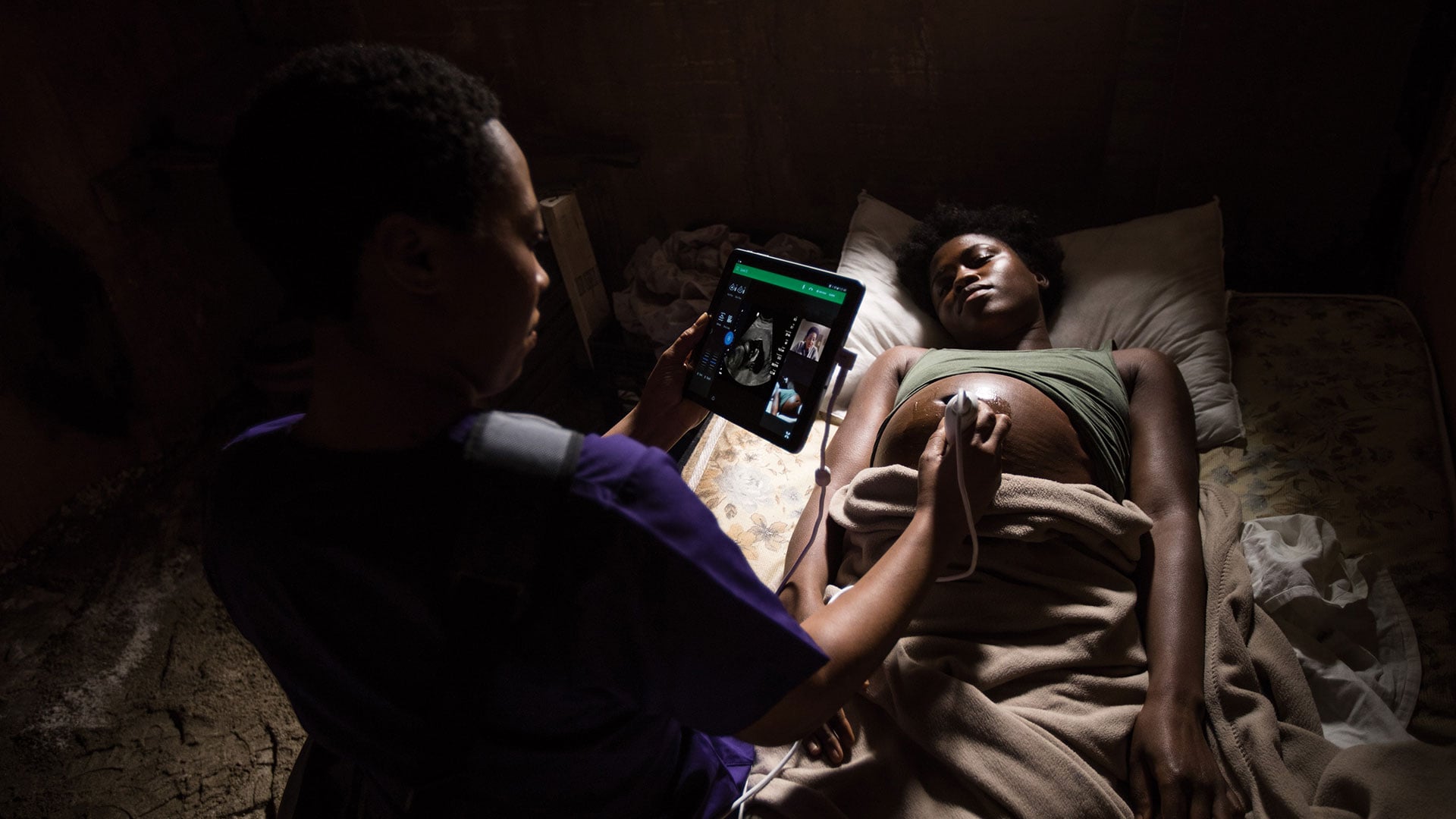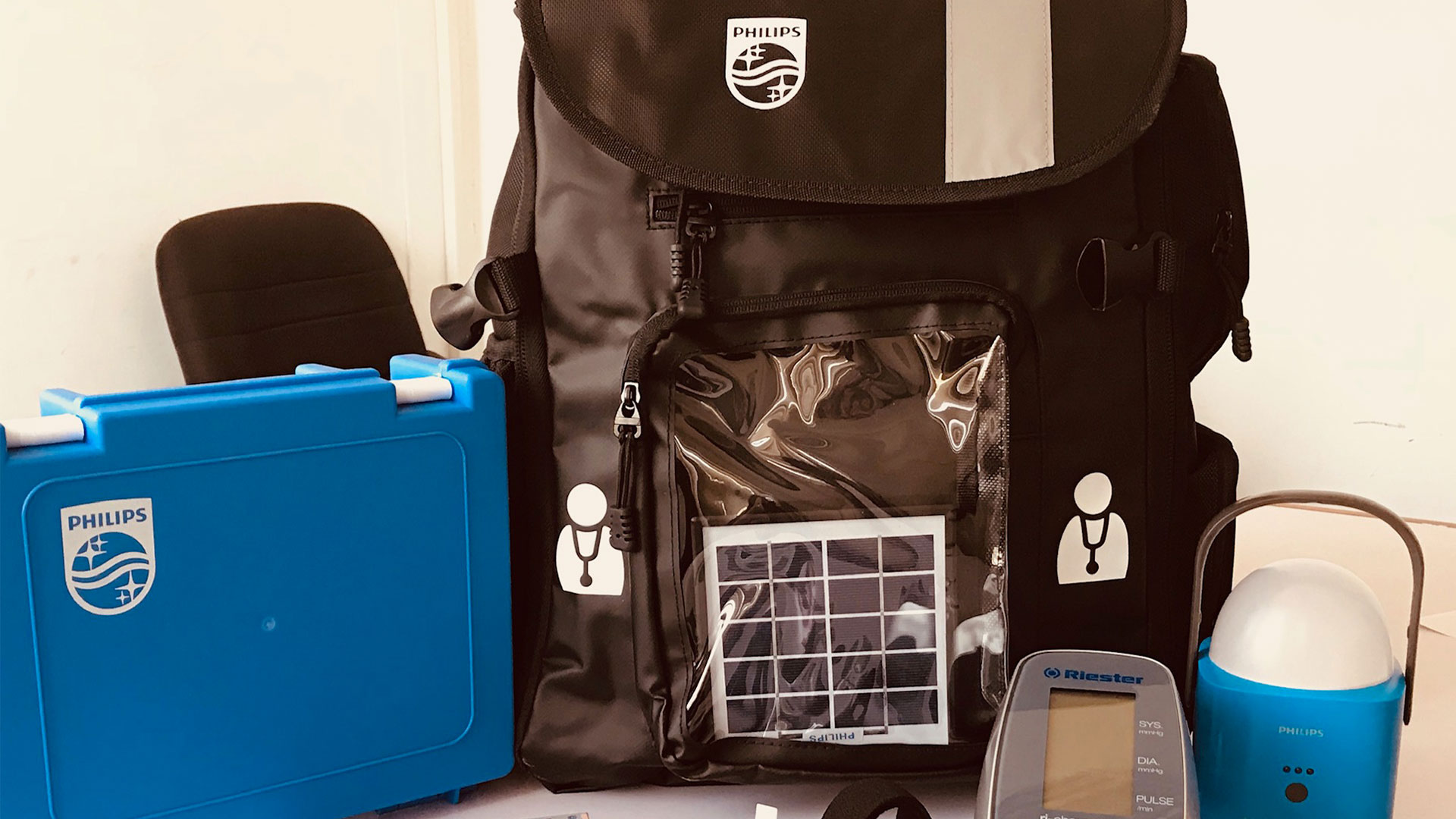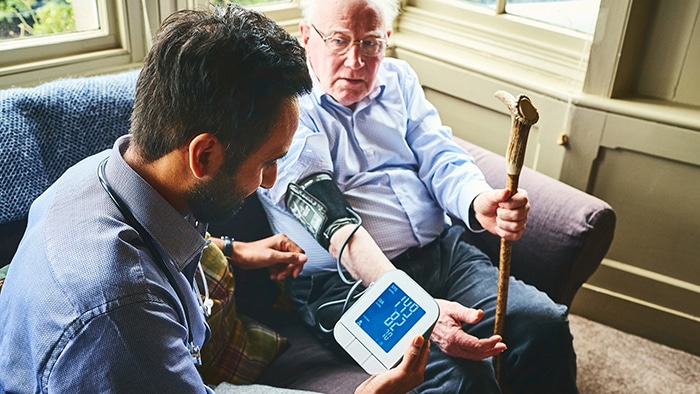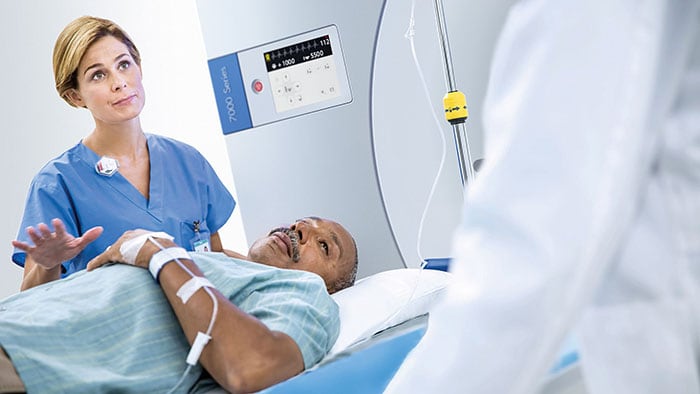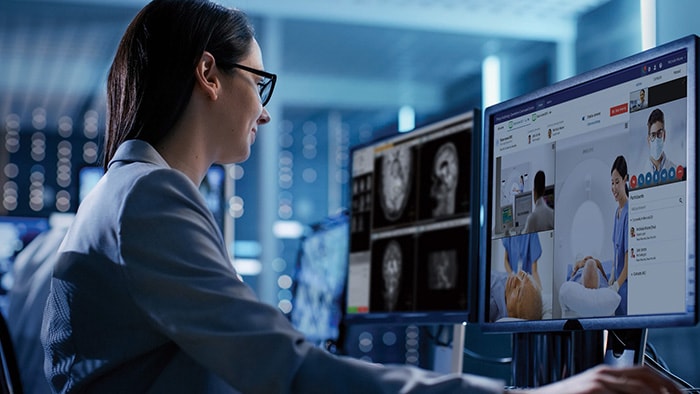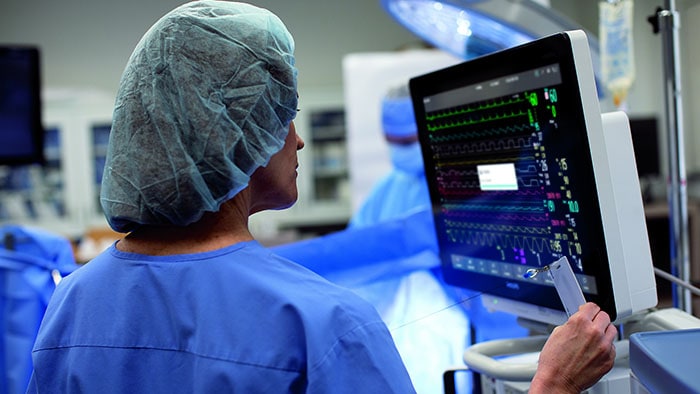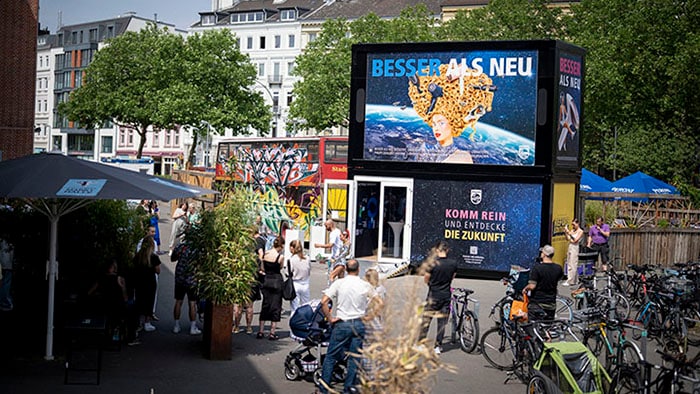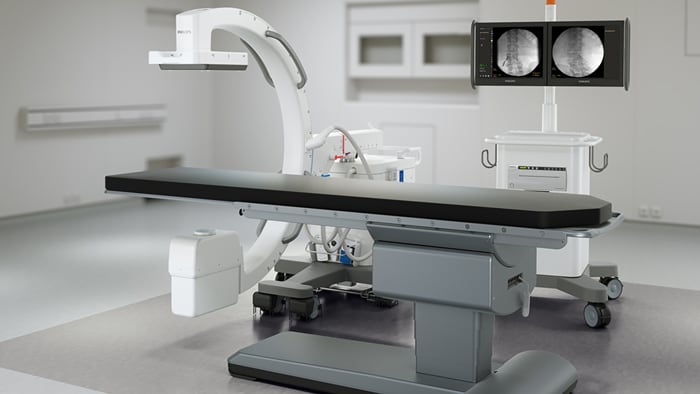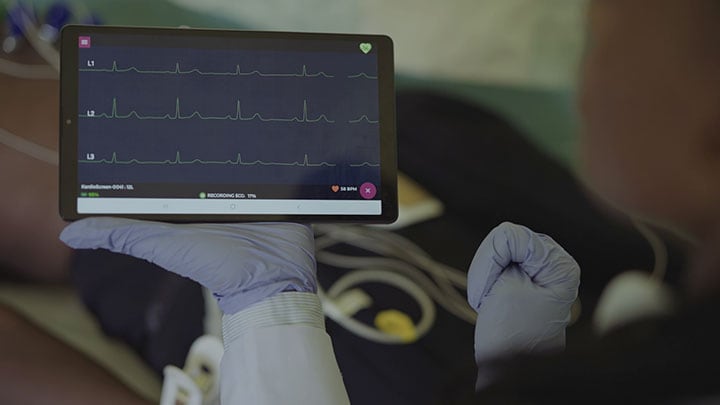Mar 07, 2019
Philips Foundation announces projects to strengthen access to primary healthcare in Kenya
Nairobi, Kenya – The Philips Foundation, a registered charity and platform for the worldwide societal activities of Royal Philips (NYSE: PHG; AEX: PHIA), today announced seven new projects in Kenya as part of Philips’ mission to improve the lives of 3 billion people a year by 2025, of which 300 million in underserved settings. The projects were announced during the visit of Ronald de Jong, Chairman of Philips Foundation, to Nairobi and are aimed at improving access to quality healthcare in underserved communities across Kenya, working in collaboration with global and local NGOs. The Philips Foundation has funded and supported more than 150 projects across the world to date, with the objective of reducing healthcare inequality by providing access to quality healthcare for disadvantaged communities. All seven projects aim to explore ways of using health technology to strengthen and innovate elements of the health delivery system by deploying Philips’ expertise, with the goal to introduce new solutions and enabling better access to quality healthcare for the Kenyan population.
We express our involvement to enhance the healthcare situation of vulnerable people in Africa. We invest in knowledge, skills and technology, in order to improve access to primary healthcare as an essential element of enhancing access. We acknowledge that this can only be done in collaboration with humanitarian organizations with an extensive network in the local habitats of these communities.
Ronald de Jong
Chairman of Philips Foundation
Improving equipment management in Kenyan health facilities
In a long-term project with UNICEF, Philips Foundation aims to drastically improve medical equipment performance in Kenyan health facilities by developing an efficient system for equipment management, service and operation. “While it is recognized that equipment availability is improving at health facilities in Kenya, it is often in a state of disrepair, including the prohibitive costs for procurement of replacement equipment and spare parts and inefficiencies in the supply chain”, said Werner Schultink, Representative at UNICEF Kenya.
After successfully completing the first phase in Kakamega County to understand the performance level and root causes for non-functionality, Philips Foundation and UNICEF will now pilot a solution for Remote Equipment Monitoring to sustain medical equipment functionality over time. The project will include a strong program of capacity building of biomedical engineers and a pilot in local spare part manufacturing.
Werner Schultink: “Access to quality medical equipment, for example, is essential for routine neonatal care, as well as for management of maternal complications for both mothers and newborns. In order to achieve this, it is critical that we develop better understanding of maintenance, repair and spare parts availability of this equipment in the local setting.”
Improving maternal and child health through mobile ultrasound technology
In a number of projects supported by the Philips Foundation, ways will be explored to use mobile ultrasound technology at primary care level, performed by midwives and supported by remote experts through telehealth, to enhance availability of affordable services in the underserved communities and remote areas of Kenya. A project called “Mimba Yangu” in collaboration with the Centre of Excellence in Women and Child Health of the Aga Khan University, will explore the feasibility, impact and costs of quality antenatal care; investigate if setting up a full ‘referral chain’ will lead to improved uptake of antenatal care; and examine if ultrasound before 24 weeks of pregnancy, as recommended by WHO, will result in better health outcomes for mothers and babies. Meanwhile, Philips Foundation, together with Amref International University, will test the financial viability of an ultrasound delivery model through businesses of midwives. In a separate project with the PharmAccess Foundation, it will be investigated what price pregnant women can pay for antenatal ultrasound scanning and if the availability and affordability of ultrasound screening stimulates pregnant women to start earlier with antenatal care. Another project related to the detection of high-risk pregnancies will be done by the Kenya Red Cross Society and the Philips Foundation. It will aim to reach 250,000 people with a tool developed and tested earlier by Philips Foundation and the International Committee of the Red Cross – the High-Risk Pregnancy Referral Cards. The tool consists of a set of visual cards, aimed to improve the conversation of midwives, community health workers and birth assistants with pregnant women, to increase awareness on healthy pregnancies and identification of at risk pregnancies and making timely referrals for care. The project will also have a component of the sensitization of front line health workers on high-risk pregnancy identification and timely referrals for action.
Supporting Community Health Volunteers with technology solutions
It is estimated that Africa has a shortage of over 4 million health workers. As countries strive to achieve Universal Health Coverage, there is a need to expand the role of community health volunteers (CHVs), workers (CHWs) and birth assistants to meet the healthcare needs and maintain task retention. Early evidence suggests that empowerment of CHVs, through provision of equipment and tools, improves retention, while other studies suggest that interventions that include capacity building lead to an increase in motivation. It is therefore that Philips Foundation and the International Federation of Red Cross Societies and Red Crescent Societies Africa regional office in Nairobi start a study to measure the effectiveness of these different intervention methods. In these (technological) interventions, CHVs will be equipped with a Community Outreach Backpack, a backpack containing essential medicine and diagnostic equipment. The same Community Outreach Backpack will be deployed in a project with the Abrassa Mentorship and Empowerment Network (AMEN) in Marsabit County. Here, technology provided to the CHW will allow them to perform more health screening tasks and it will be investigated how this affects access to and outcomes of primary maternal and child healthcare in the vast areas with sparsely populated health facilities they serve.
About Royal Philips
Royal Philips (NYSE: PHG, AEX: PHIA) is a leading health technology company focused on improving people's health and enabling better outcomes across the health continuum from healthy living and prevention, to diagnosis, treatment and home care. Philips leverages advanced technology and deep clinical and consumer insights to deliver integrated solutions. Headquartered in the Netherlands, the company is a leader in diagnostic imaging, image-guided therapy, patient monitoring and health informatics, as well as in consumer health and home care. Philips generated 2018 sales of EUR 18.1 billion and employs approximately 77,000 employees with sales and services in more than 100 countries. News about Philips can be found at www.philips.com/newscenter.
About Philips Foundation
The Philips Foundation is a registered charity that was established in July 2014 as the central platform for Philips’ CSR activities. Reflecting our commitment to United Nations Sustainable Development Goals 3 (Ensure healthy lives and promote well-being for all at all ages) and 17 (Revitalize the global partnership for sustainable development), the mission of the Foundation is to reduce healthcare inequality by providing access to quality healthcare for disadvantaged communities. We do this by deploying Philips’ expertise, innovative products and solutions, by collaborating with key partners around the world and by providing financial support for collaborative activities. More information on the Philips Foundation can be found at https://www.philips-foundation.com/


